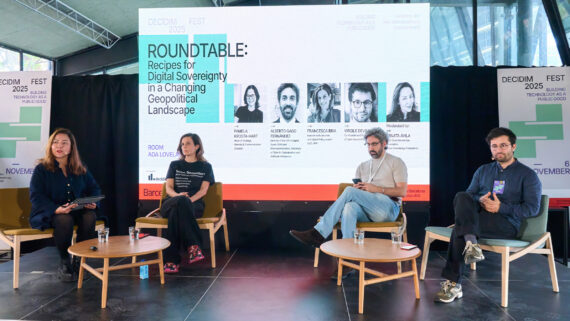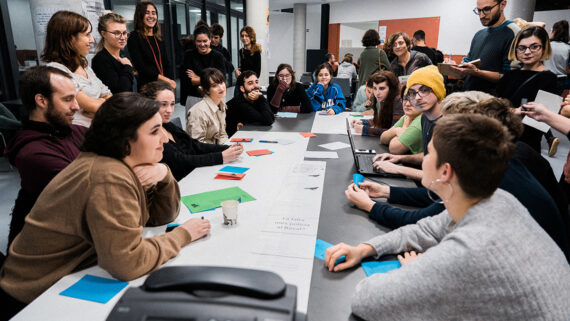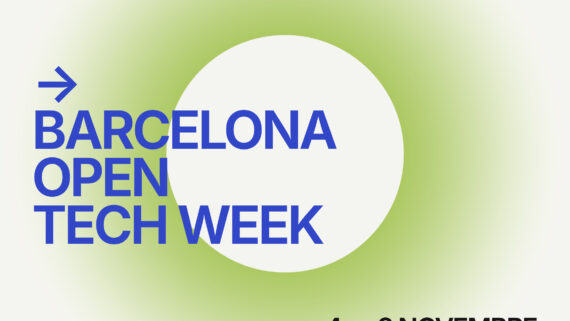
Did you know that 25% of Catalans live at risk of poverty or social exclusion? Or that the current digital divide affects 32% of households? The installation of ECAS (Entitats Catalanes d'Acció Social), "The House of Absences," arrives at the Canòdrom with the aim of generating debate. The exhibition constructs the scenography of a house to make some of the most invisible poverties, such as the digital divide.
You enter through the main door and it seems like any other house, it could be yours. There is very ordinary furniture, a table, chairs, a sofa, wardrobes, clothes and everything. Everything? The installation points out to us part of what is missing in this house to make us see how invisible extreme poverty can sometimes be, especially when it hides within the four walls of a home. The installation “The Home of Absences” is a space for dialogue and reflection around the data that comes from the reports of social indicators in Catalonia.
One Home, Many Data
On entering, we can be guided by a map and discover the absence of some of the objects that indicate what these shortcomings are with concrete data. Percentages that are more than numbers when we see the absence in the home, when we are aware of the difficulties that day-to-day life can entail without this element that for us may be essential. Digital exclusion is the new front for social entities, another factor of exclusion that conditions access to other essential rights such as education, work, health or the relationship with administrations.
A Space for Debate
In this exhibition, ECAS is committed to public awareness through an exhibition format where immersion and public participation become tools for visualization and reflection. As Mariona Puigdellívol, General Director of ECAS, points out, “what we want from ECAS is to bring the data and analyses of the INSOCAT reports to the public not from a rational point of view, but by connecting with their empathy”. This is what this debate space consists of, where visitors can respond to three myths about poverty that are questioned and can be answered quickly while seeing at the same time the result of the other people who have already visited the installation.
Digital Interaction
The last space aims to collectively rethink the definition of well-being and invites visitors to respond through a QR code that encourages digital interaction with the intention of developing a collaborative manifesto on the State of Well-being that directly appeals to the Ministry of Well-being.
The exhibition can be visited free of charge until June 7, every afternoon from Monday to Friday from 4 to 8 pm. In addition, guided tours for groups are offered, which can be requested through activitats@canodrom.barcelona.








